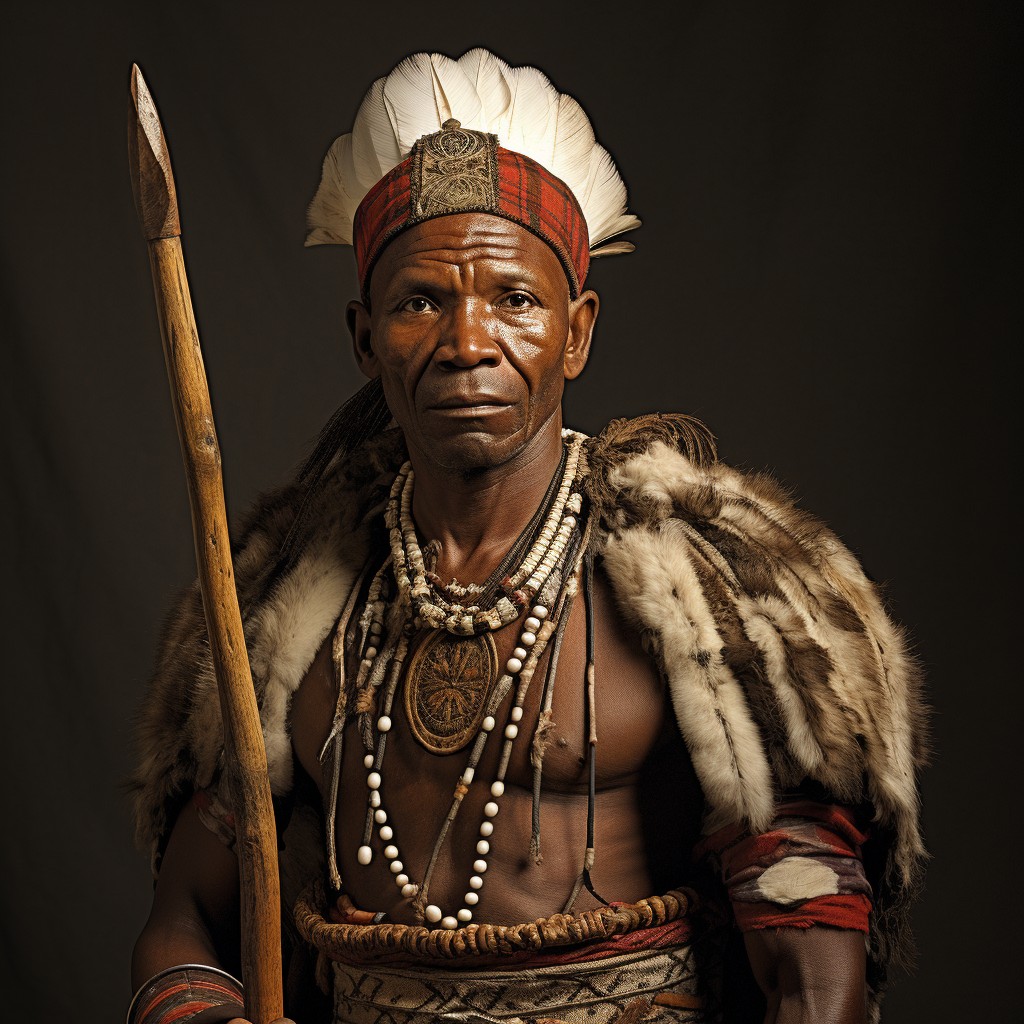 Chief Maqoma's legacy is not just a story of resistance against colonial oppression but also a testament to the spirit of the Xhosa people and their unyielding quest for justice and autonomy.
Chief Maqoma's legacy is not just a story of resistance against colonial oppression but also a testament to the spirit of the Xhosa people and their unyielding quest for justice and autonomy.
Early Resistance and Leadership
Born in 1798, Jongumsobomvu Maqoma emerged as a pivotal figure during the 19th-century frontier wars between the Xhosa and British colonizers. As the Right Hand Son of Ngqika, the King of the Rharhabe division of the Xhosa nation, Maqoma didn't like his father's decision to cede the land between the Fish and Keiskamma Rivers to the Cape Colony. This resistance set the stage for Maqoma's lifelong mission to reclaim his ancestral lands.
The Wars of 1835 and 1851
During the wars of 1835 and 1851, Ngozi Maqoma Ganduka, the prince of the Rharhabe Xhosa, distinguished himself as a formidable military strategist. His guerrilla campaign in the Waterkloof region effectively engaged larger British troop formations, demonstrating his unmatched tactical prowess. The Cossack British War of Mlangeni, or the Eighth Xhosa War, saw the Xhosa emerge victorious in seven out of eight battles, largely due to Maqoma's military genius. This war, which lasted on and off for over 55 years, saw the British change commanders and governors multiple times, attesting to the relentless resistance led by Maqoma.
The Battle Grounds
The war was primarily waged in the rugged terrains of the Amathole Mountains, the Waterkloof, the Krumi Heights, and the Fish River Bush. This period saw an increase in European missionaries in Xhosa territories and a growing interference of British-appointed magistrates in Xhosa traditional leadership. The annexation of land in the Yume Valley and the establishment of white military veteran communities further exacerbated tensions.
The Prophecies and the War's Climax
A significant turning point in the conflict was the prophecy of a Xhosa seer named Mlangeni. He foretold the slaughter of cattle associated with white colonizers and the abandonment of witchcraft. This prophecy played a pivotal role in the events of Christmas Eve 1850 when British Colonel George MacKinnon led a force into the Amatole Mountains to capture King Sandile. The ambush orchestrated by Maqoma on this expedition showcased his tactical mastery and solidified his reputation as a formidable military leader.
The End of an Era
Despite his successes, by 1853, the British scorched earth campaign began to take its toll, depleting the Xhosa's resources and forcing many to flee. In a testament to his leadership, Maqoma managed to keep the British at bay with a force estimated by some colonists to be no more than 200 men, challenging over 4,000 of the British Army's finest troops. However, facing insurmountable odds, both Maqoma and King Sandile eventually communicated their wishes to surrender.
Legacy and Memory
Chief Maqoma's undying spirit resonates even today, immortalized by the memorial erected at his grave near the Ntaba kaNdoda National Monument. The life and struggles of Maqoma serve as a beacon of resilience, inspiring generations to fight for justice and autonomy. As Dominic Duval aptly noted, Maqoma remains "the most renowned Xhosa chief in South Africa's 19th-century frontier wars." Through his leadership, Maqoma not only resisted colonial oppression but also etched an indelible mark in the annals of South African history.
Sources: Umlando - The African Story |

